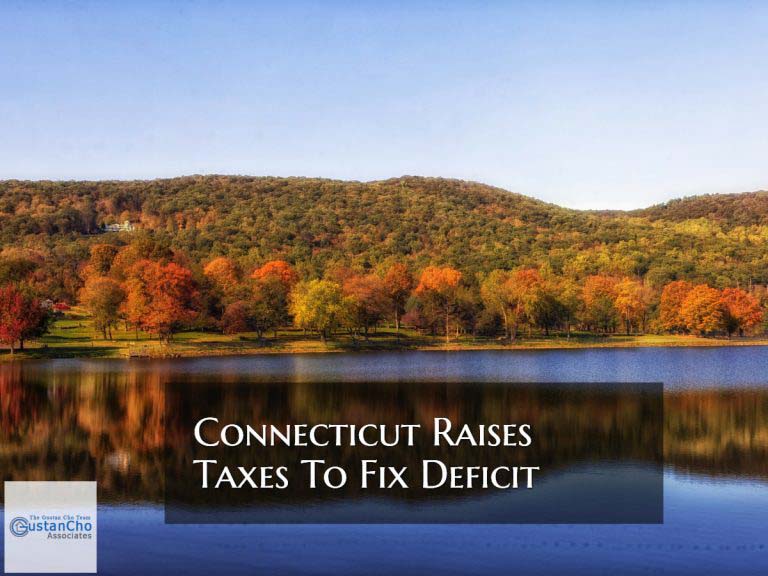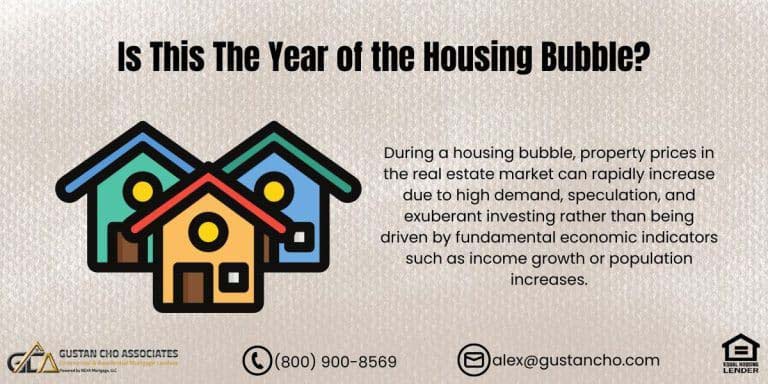Today’s Mortgage Rates
Program |
Rate |
APR |
Change |
| Conforming 15-Year Fixed |
2.15% |
2.25% |
0.02% |
| Conforming 30-Year Fixed |
2.78% |
2.83% |
-0.02% |
| FHA 15-Year Fixed |
2.28% |
3.32% |
-0.16% |
| FHA 30-Year Fixed |
2.56% |
3.58% |
-0.19% |
| VA 15-Year Fixed |
2.15% |
2.56% |
-0.04% |
| VA 30-Year Fixed |
2.44% |
2.67% |
0.01% |
Get a custom mortgage rate quote now.
What’s Affecting Mortgage Rates Today?
Today’s mortgage rates opened mostly lower. That’s mostly because of movements in the bond market late yesterday. However, the financial metrics below point to higher rates in the near future.
June’s Consumer Confidence Index (CCI) from The Conference Board completely blew by analysts’ forecasts. The index increased to 127.3 when economists had predicted a decrease to 119 from May’s reading of 120. This indicates higher consumer confidence, increasing spending on big-ticket purchases, economic heat, and probable inflation. That’s bad for mortgage rates.
Should You Lock Your Mortgage Rate Today?
| Closing (Days) | Recommendation |
| 7 days | LOCK |
| 15 days | LOCK |
| 30 days | LOCK |
| 45 days | LOCK |
| 60 days | LOCK |
| >60 days | FLOAT |
Locking isn’t always a no-brainer for longer periods, even in a rising rate environment, because locking a loan costs money. The interest rate you’ll get with a 7-day lock is lower than that of a 15-day lock, and so on. Locks longer than 30 days often come with up-front fees (.5% is typical for 60 days). If you can get a longer lock at a decent cost today, you should probably go for it.
What Does it Mean to “Lock” Your Mortgage?
When you apply for a home loan, your lender gives you documents with that day’s interest rate on them. But interest rates change all the time. In fact, mortgage rates can change more than once a day. So you don’t know what your actual mortgage rate will be until you lock it in. Once you lock, you’ll close at that rate as long as your application does not change significantly and you close within your lock period.
Lock periods range from 7 days to 180 days or more. Shorter lock periods are less risky to your lender and less expensive to you. Most lenders quote rates with 30-day locks. Until you lock your loan, you are said to be “floating.” You cannot close your loan until you lock.
Are Mortgage Rates Going Up or Down?
Mortgage rates are trending higher. Every well-known mortgage rate forecast predicts interest rates rising in 2021. As the economy recovers from the pandemic, expect prices to surge, inflation to become a concern, and mortgage rates to increase.
If you can get your mortgage sooner rather than later, you’ll probably get a much better rate than if you wait until 2022.
See if you qualify for a home loan in just 5 minutes.

Financial Markets and Today’s Mortgage Rates
Today’s indicators mostly point to higher mortgage rates. Keep an eye on oil prices and the 10-year Treasury yields if you are contemplating a rate lock. Here are the data influencing mortgage rates today:
Stocks
Major stock indexes opened higher this morning. Stock market prices are reasonably good predictors of interest rates. When stocks increase, the economy is heating up. This usually leads to higher mortgage and other interest rates. Falling stock prices normally correlate with lower interest rates. This morning’s prices are bad for today’s mortgage rates.
Treasury Yields
The 10-year Treasury note remains unchanged at 1.49%. Yields on 10-year Treasuries usually move in the same direction and degree as mortgage rates, so today’s move is neutral for mortgage rates.
Oil Prices
Oil prices rose $.08 to $73.30 per barrel. That’s slightly bad for mortgage rates. Because oil is necessary for most economic activity in the US, rising oil prices trigger fears of inflation. This often causes interest rates to increase, while falling oil prices generally cause interest rates to drop.
Gold Prices
The price of gold fell $27 to $1754 per ounce. Rising gold prices often indicate economic weakening and lower interest rates, but rates often increase as gold prices fall. This change is bad for today’s mortgage rates.
Fear and Greed
CNNMoney’s Fear & Greed Index measures how optimistic or pessimistic market participants are by using a variety of formulas. When investors are optimistic or greedy, mortgage rates tend to increase. And when investors become more fearful, interest rates fall. Today’s index rose 1 point to a “fearful” 45. The scope and direction of this movement are bad for mortgage rates.
This Week’s Economic Schedule
This week brings a handful of important releases, the most important day being Friday.
Monday
No scheduled releases.
Tuesday
The Conference Board releases June’s Consumer Confidence Index (CCI). This report moves financial markets because it tracks consumers’ potential willingness to spend. Consumer spending drives two-thirds of the US economy, so it’s a big factor in bond yields and mortgage rates. Economists predict a 1.8 point increase to a reading of 119. A lower number would be good for mortgage rates, while a higher one would trigger concerns about inflation and could push rates higher.
Wednesday
June’s ADP Employment report could push markets if it varies significantly from forecasts. It tracks payroll processing giant ADP’s changes in its private-sector payrolls. Analysts expect that 450,000 new payrolls were added. More would be bad for mortgage rates, while fewer could push rates lower.
Thursday
Last week’s unemployment claims have been predicted to fall by 24,000 to 387,000. More claims would be bad for the economy but good for mortgage rates. Fewer claims would be good for the recovery but possibly lead to inflation — bad for mortgage rates. Most people will ignore this week’s numbers however because tomorrow brings the more important monthly numbers.
June’s manufacturing index from the Institute of Supply Management (ISM) measures manufacturer confidence by surveying trade executives. Experts predict a reading of 61.0, meaning manufacturers are generally confident but little changed from the previous month. An unexpectedly higher number could push rates higher as this is a very important report. A lower number could cause rates to drop.
Friday
June’s Employment Situation report shows the latest unemployment rate and the number of new jobs added or lost. This report can quickly affect mortgage rates. Economists anticipate that the unemployment rate will be 5.7%, that the economy added 680,000 jobs, and that average earnings rose 0.5%. Fewer jobs and lower earnings would be good for mortgage rates, while more income and jobs would probably push rates higher.
May’s Factory Orders report from the Commerce Department is expected to deliver a 1.5% increase in new orders from April’s reading. More orders would be good for the economy but bad for mortgage rates, while orders would be good for the bond market and for mortgage rates.
Why Mortgage Rates Change
In general, a strengthening economy causes interest rates (including mortgage rates) to increase. That’s because an expanding economy can increase the rate of inflation, and investors demand higher returns when they are concerned about inflation.
When the economy weakens, investors become less worried about how much their money earns and more worried about retaining their principal. So demand for safe investments like bonds increases, driving their prices up and interest rates down.
The example below illustrates how the economy causes prices for bonds and mortgage-backed securities (MBS) to increase or decrease – and how yields (interest rates) respond when the price of a bond or MBS changes.
How Bond Prices and Interest Rates Work
Bond issuers create $1,000 bonds paying a specific interest rate. The issue price, $1,000 per bond, is often called “par.” The interest rate for that bond is called the “coupon rate.” If you buy a $1,000 bond paying 5%, your yield would be 5% — the same as the coupon rate.
Your interest rate: $50 interest / $1,000 bond price = 5%
However, bonds don’t stay at par pricing — they trade similarly to stock shares, and their prices rise and fall all the time. These price changes are caused by events that impact the global economy. Events that point to economic expansion and possible inflation cause the demand for bonds to fall and rates to increase.
On the other hand, events that indicate economic instability or failure cause investors to desire safer investments like bonds and MBS. Demand for these instruments causes their prices to rise and rates to fall. The examples below illustrate the upward and downward interest rate movements in response to economic conditions.
When Interest Rates Fall
Suppose that after you buy a bond at par from the issuer, the economy becomes troubled. Say it’s because of a war overseas or a global pandemic. Investors demand safe places to put their money and 5% becomes a highly desirable interest rate. You sell your $1,000 bond to an investor for $1,500. The buyer gets the same $50 a year in interest that you were getting. It’s still 5% of the $1,000 coupon. However, the yield drops. Your buyer’s interest rate: $50 annual interest / $1,500 bond price = 3.33%
When Interest Rates Rise
The opposite happens when the economy gets better. Suppose that after you purchased your $1,000 bond, the pandemic is resolved with the invention of a vaccine and the warring countries overseas come to terms. The stock market comes roaring back, and 5% doesn’t look so great anymore. Investor demand falls for your bond and you can only sell it for $750. The buyer pays less and enjoys a higher yield.
Your buyer’s interest rate: $50 annual interest / $750 bond price = 6.67%
What Are Mortgage-Backed Securities (MBS)?
A mortgage-backed security is an investment similar to a bond. The security is backed by a bundle of home loans bought from mortgage lenders that issue them. Investors in MBS receive payments similar to bond coupon payments.
Most mortgage-backed securities are issued by Fannie Mae, Freddie Mac, and Ginnie Mae. These companies were supported by the government to make homeownership more accessible to consumers. Fannie Mae, Freddie Mac, and Ginnie Mae also set guidelines that banks and lenders must follow in order to protect the investors who buy MBS.
MBS are not as safe as US Treasuries, so their yields tend to run a little higher. However, they are widely viewed as safe investments and their yields (rates) tend to move in the same direction as those of Treasuries.
What Is a Mortgage Rate Float-Down and Do You Want One?
If deciding to lock or float your mortgage rate stresses you out, there is another option — the float-down. A float-down allows you to lock in a mortgage rate; but if rates drop before you close on your home loan, you get to close at the lower rate.
Float-downs are not free — you either pay an up-front fee for the privilege or accept a slightly higher interest rate.
Not all float-downs are the same. Some lenders only let you exercise the float-down option the day they draw your closing documents. Others allow you to lock in a lower rate any time during the process.
Still, others require the new rate to be at least a certain percentage lower than your locked rate before they let you change to the lower rate — .125 to .25 percent is typical.
Read your documents carefully, and understand what a float-down will cost you and what you’ll get for your money.









Great information. Thank you. This is a great help in me doing due diligence during my home refinance process.
I would like to see if I can get pre-approved
People with worst credit than me have been able to purchase
You can get preapproved in minutes right here! Just click the button that says “Check if you qualify.”
I am happy that the content is helpful to you. To prequalify or get preapproved, please just click the “Prequalify Now” link and a loan officer will help you.
VA programs allow you to qualify using a debt-to-income ratio or a more-generous residual income worksheet. To see your maximum loan amount, click Prequalify Now to get expert help from our loan officers. They will take great care of you!
Hello, I am in need of a home mortgage and the FHA loan limit is too low here in Broward county. I am currently paying down all of my revolving accounts trying to raise my scores. I had decent credit until I caught Covid back in February and I had some late pays. I have brought all accounts current, but my lease is up and the owner wants the house for his daughter. I need assistance unfortunately now and not later.
Please contact us with your contact information at gcho@gustancho.com. Let’s see if we can get you qualified on a conventional loan which has a maximum loan limit of $548,250. Looking forward to working with you and your family.